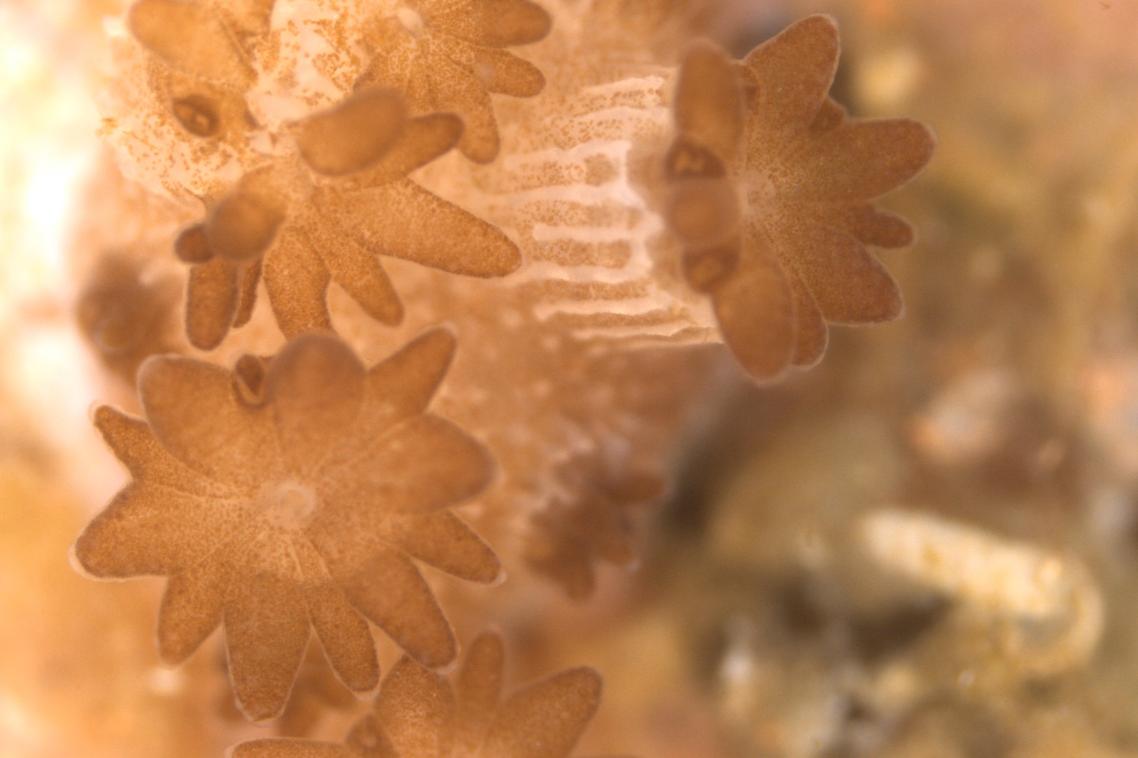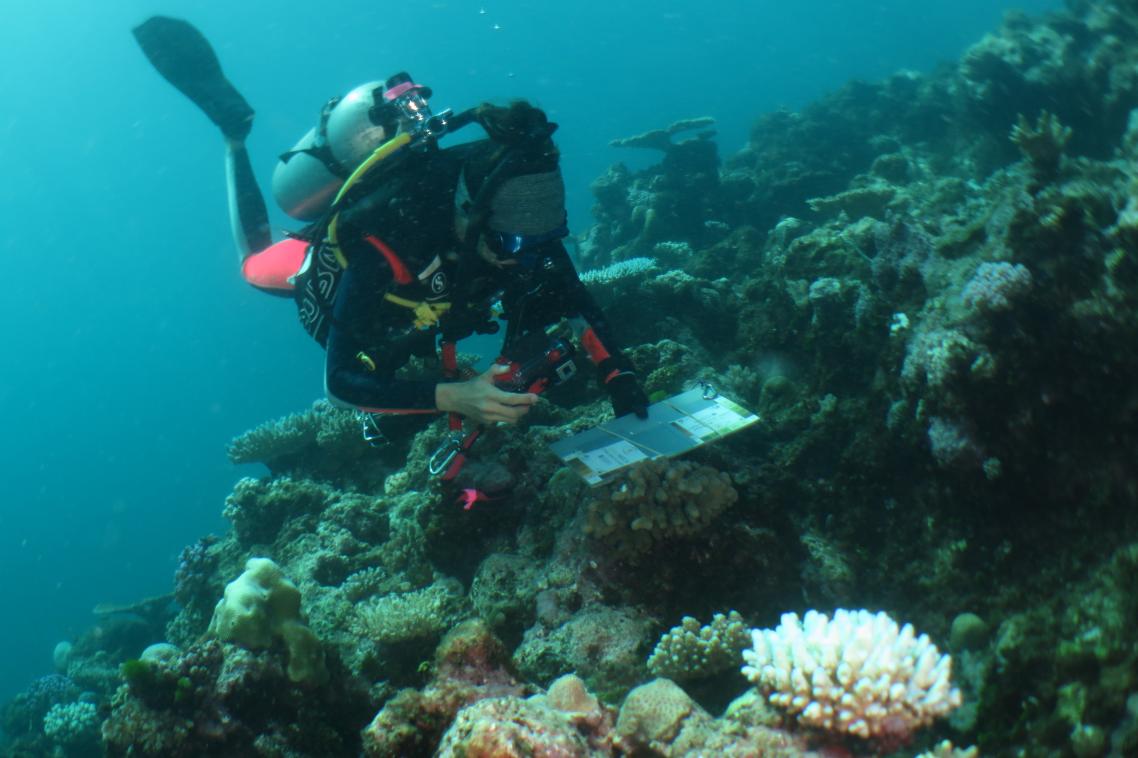Understanding relationship break-ups to protect the reef

Unravelling the secrets of the relationship between coral and the algae living inside it will help prevent coral bleaching, University of Queensland researchers believe.
Bleaching occurs when the symbiotic relationship between coral and algae breaks down – corals under environmental stress disconnect from their algae partners, which means they lose their energy source.
Institute for Molecular Bioscience (IMB) researcher Dr Cheong Xin Chan said most studies to date have been about the corals rather than the algae.
“Little is known about the molecular mechanisms underlying their symbiotic relationship — how can we understand the break-up if we don’t understand the relationship in the first place?” he said.
Dr Chan’s team is using genomic data to look for genes that enhance resilience in the algae and help coral adapt to the environmental shifts created by climate change.
The algae that live within coral are dinoflagellates, a type of phytoplankton – tiny photosynthetic organisms that manufacture their own food harvesting energy from sunlight.
“This algae family is very diverse,” Dr Chan said.
“Some are toxic, causing the harmful algal blooms known as ‘red tides’, while others provide bioluminescence or grow in sea ice, and many are free-living.”
IMB researcher Raul González-Pech said the algal genome is about half the size of the human genome.
“Nothing is straightforward with these algae as they have some of the weirdest genomes we’ve ever seen,” he said.
“In a human cell, the DNA is organised into 23 pairs of chromosomes but the DNA of these algal cells is so tightly packed that we still don’t know exactly how many chromosomes they have.”
Previous studies were based on bacteria or parasites, with researchers predicting these algae would have a similar evolutionary path, but genetic data shows they operate very differently to other intracellular inhabitants.
“In our earlier analysis of the genomes, we found that these algae may be capable of sexual reproduction, which may enhance their capacity to adapt to the environment,” Mr González-Pech said.
The researchers now want to compare the genomics of the symbiotic and free-living species to understand how the differences in their genomes correspond to differences in their lifestyles.
That would provide more clues about their symbiotic relationship with coral.
“Dinoflagellates are vital for the survival of Australia’s Great Barrier Reef,” Dr Chan said.
”We can use genomic information to address fundamental questions of what makes these algae successful symbiotic partners in the coral reefs, for example, how they contribute to heat-resistance in certain corals more than others.
“We have sequenced nine of these algal genomes in four years – the sequencing technology has come so far and allowed us to be the most prolific lab for generating dinoflagellate genomic data.”
“Understanding this relationship between algae and coral is one of the most challenging problems.
“Here at IMB, we are motivated by the most complex puzzles.”
The research, in collaboration with Emeritus Professor Mark Ragan at IMB and Professor Debashish Bhattacharya at Rutgers University, was published in Trends in Ecology & Evolution (doi.org/10.1016/j.tree.2019.04.010) and supported by two Australian Research Council grants.
Media: IMB Communications, communications@imb.uq.edu.au, +61 (0)4 0566 1856; Dr Cheong Xin (CX) Chan, c.chan1@uq.edu.au, +61 7 3346 2617, +61 416 310 786.
Related articles

Under the surface: how genetics could save the Great Barrier Reef

Peptides to prime plant defence against viruses in vegetables
Media contact
UQ Communications
communications@uq.edu.au
+61 429 056 139
